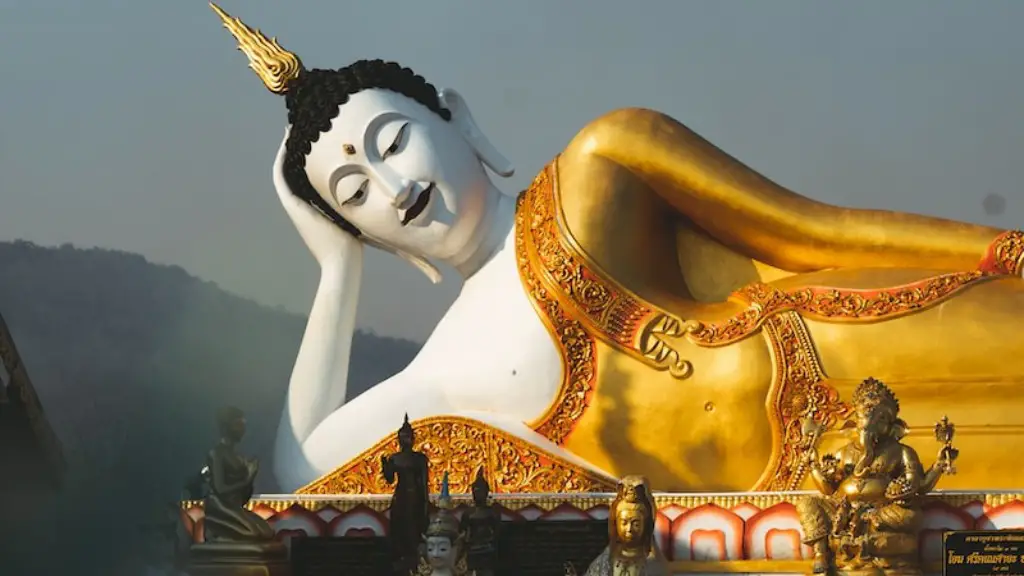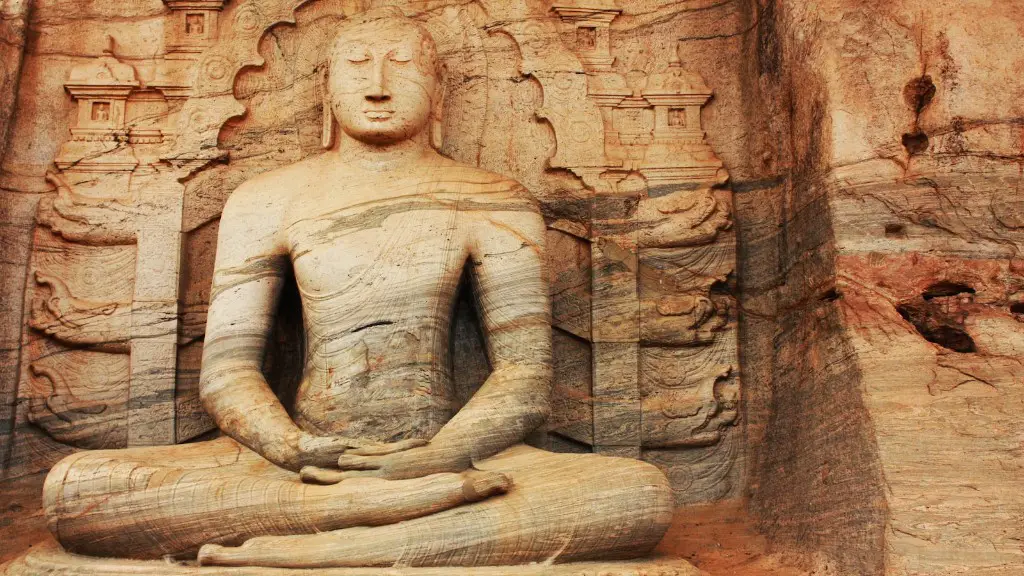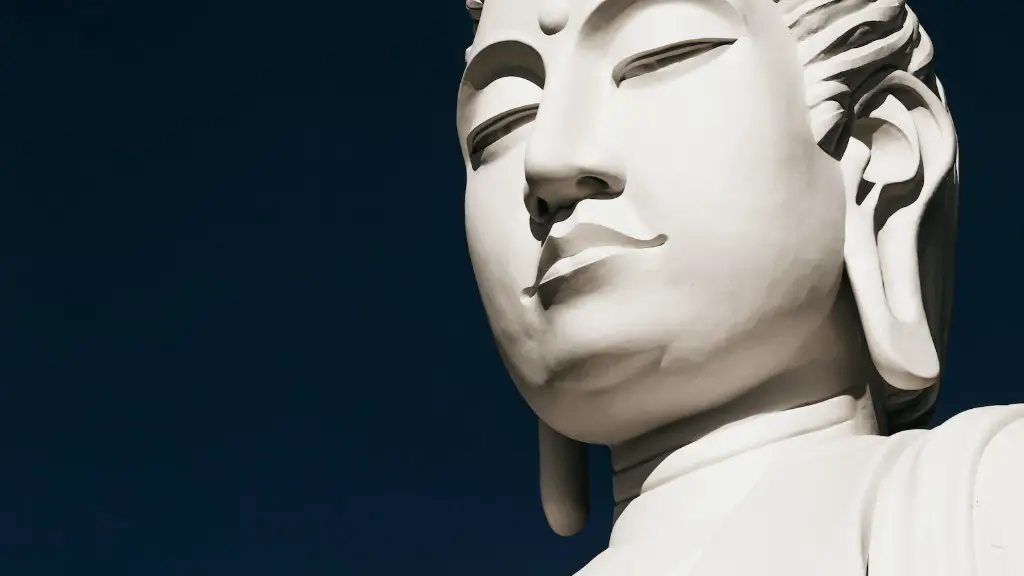Buddhism is a religion that was founded by Siddhartha Gautama in the 5th century BCE. The fundamental beliefs of Buddhism include the Four Noble Truths, the Eightfold Path, and the Three Universal Truths. These beliefs are based on the teachings of the Buddha and help to guide Buddhists on their path to enlightenment.
There are a few fundamental beliefs of Buddhism, which include the Four Noble Truths, the Three Universal Truths, and the Noble Eightfold Path. The Four Noble Truths are that life is suffering, that suffering is caused by desire, that suffering can be ended, and that the way to end suffering is by following the Noble Eightfold Path. The Three Universal Truths are that everything is impermanent, that everything is interconnected, and that everything is empty of inherent self-nature. The Noble Eightfold Path is the path that leads to the end of suffering, and it includes Right View, Right Intention, Right Speech, Right Action, Right Livelihood, Right Effort, Right Mindfulness, and Right Concentration.
What are the 3 main beliefs of Buddhism?
Buddhism is a religion that is based on the teachings of Siddhartha Gautama. The main principles of this belief system are karma, rebirth, and impermanence.
Karma is the belief that your actions in this life will determine your future in future lives. Rebirth is the belief that you will be reborn into another life after you die. Impermanence is the belief that everything in life is temporary and will eventually come to an end.
The Five Precepts are basic guidelines for living a moral and ethical life. They are:
1. Refrain from taking life
2. Refrain from taking what is not given
3. Refrain from the misuse of the senses
4. Refrain from wrong speech
5. Refrain from intoxicants that cloud the mind.
Following these precepts will help us to live a life that is in harmony with others and with our own conscience.
What are the 8 important beliefs of Buddhism
The Eightfold Path is a series of eight steps that Buddhists can follow to help them lead a contented (satisfactory) life. They are: Right Understanding; Right Thought; Right Speech; Right Action; Right Livelihood; Right Effort; Right Mindfulness; Right Concentration.
Buddha’s Four Noble Truths are the foundation of his teachings and provide a great deal of wisdom and insight, though they do leave much unexplained. The first truth is the truth of suffering, which acknowledges that life is full of suffering and pain. The second truth is the truth of the cause of suffering, which is that our desires and attachments are the root cause of our suffering. The third truth is the truth of the end of suffering, which is that it is possible to end our suffering by let go of our attachments and desires. The fourth truth is the truth of the path that leads to the end of suffering, which is the Noble Eightfold Path. This path includes things like right understanding, right thought, right speech, and right action.
What are the 3 main beliefs of Buddhism quizlet?
Buddhism is a religion that is based on the belief in karma, reincarnation, and enlightenment. The Buddha, Siddhartha Gautama, is said to have been enlightened after he attained Nirvana. Nirvana is a state of being free from selfishness and pain. Samsara is the cycle of rebirth that Hindus and Buddhists believe in. The goal of Buddhism is to end the cycle of rebirth and attain Nirvana. The four noble truths are the foundation of Buddhism. They are: 1) suffering exists; 2) suffering is caused by attachment and aversion; 3) suffering can be ended by ending attachment and aversion; 4) the Eightfold Path leads to the end of suffering.
These six virtues are the foundation of the Buddhist path. They are essential for making progress on the path and for attaining nibbana.
What are the 7 pillars of Buddhism?
The Seven Factors of Awakening are a set of mental capacities that Buddhist tradition holds in high esteem. These factors, known as “inner wealth,” are mindfulness, investigation, energy, joy, tranquility, concentration, and equanimity. Each capacity is believed to contribute to a person’s overallAwakening, or spiritual growth.
Buddha taught that there are four noble truths: the truth of suffering, the truth of the cause of suffering, the truth of the end of suffering, and the truth of the path that frees us from suffering. He explained that suffering is caused by our attachment to things that are impermanent, and that the only way to end suffering is to let go of our attachments. The path to freedom from suffering is the Eightfold Path, which involves developing our understanding, intention, speech, action, livelihood, effort, mindfulness, and concentration.
What are the 7 Buddhist virtues
Of the many virtues promoted in Buddhism, the Pāramitās, or perfections, are perhaps the most widely known. These perfections include Dāna (generosity), Sīla (proper conduct), Nekkhamma (renunciation), Paññā (wisdom), Viriya (energy), Khanti (patience), Sacca (honesty), Adhiṭṭhāna (determination), Mettā (Good-Will), and Upekkhā (equanimity).
Each of these virtues is important in its own right, and taken together they provide a comprehensive guide to living a virtuous life. However, it is worth noting that the Pāramitās are not meant to be strictly adhered to in an inflexible way. Rather, they are intended to be taken as general principles that can be adapted to fit each individual’s unique circumstances.
In short, the Pāramitās offer a framework for living a good and meaningful life, and as such, they are well worth studying and incorporating into one’s own life.
The Ten Grave Precepts are a set of ethics tenets that provide guidance on how to live a moral and upright life. The precepts encourage respect for life, giving, honoring the body, speaking the truth, and seeing the perfection in all beings. These precepts provide a foundation for living a good life and can be a helpful guide in making decisions about right and wrong.
What is the moral code of Buddhism?
Ethical behavior is important because it leads to positive outcomes and a better understanding of the world around us. When we act in an ethical manner, we are choosing to do what is right, regardless of the consequences. This can be difficult at times, but it is essential in order to maintain our integrity and be true to ourselves. Buddhism teaches that all beings are connected and that we should behave in a way that causes the least amount of harm. This includes refraining from violence, theft, sexual misconduct, lying, and using intoxicants. When we act in accordance with these precepts, we are acting with wisdom and compassion, which leads to a more enlightened mind.
The ten unwholesome actions are taking life, taking what is not given, sexual misconduct, lying, sowing discord, harsh speech, idle gossip, covetousness, and more. All of these actions lead to negative consequences and harm others.
What do Buddhists believe happens after death
Buddhist teaching views life and death as a continuum and believes that consciousness (the spirit) continues after death and may be reborn. Death can be an opportunity for liberation from the cycle of life, death and rebirth.
The precepts are a great way to develop mind and character and progress on the path to enlightenment. They help us to abstain from killing living beings, stealing, sexual misconduct, lying and intoxication. They are meant to help us become more compassionate and wise, and I think they definitely do that.
Are tattoos allowed in Buddhism?
There is no definitive answer when it comes to whether or not Buddhists can get tattoos. While some people believe that Buddhists are not allowed to get tattoos because of their belief in the impermanence of the body, others believe that tattoos are acceptable because they are seen as temporary. Ultimately, it is up to the individual to decide whether or not they want to get a tattoo.
Buddhism is a tradition focused on spiritual liberation, not on theistic belief. The Buddha himself rejected the idea of a creator god, and Buddhist philosophers have even argued that belief in an eternal god is nothing but a distraction for humans seeking enlightenment.
Warp Up
The fundamental beliefs of Buddhism are that all beings have the potential to achieve enlightenment, that suffering can be ended by eliminating ignorance and craving, and that compassion and altruism are the surest means to spiritual enlightenment.
The most fundamental belief of Buddhism is the Four Noble Truths, which state that life is full of suffering, that suffering is caused by our desires, that suffering can be ended by eliminating our desires, and that the way to eliminate our desires is through the Eightfold Path. Other important beliefs include karma (the law of cause and effect), rebirth (the cycle of life, death, and rebirth), and nirvana (the permanent end of suffering).




